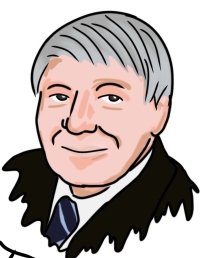I voted for three people at the age of eleven

Download image
František Vlk was born on June 27, 1946 in České Křídlovice. His parents farmed a small piece of land there. After the communists came to power, their supplies were increased and the fields were moved further and further away. The mother became ill with tuberculosis and the father no longer had the strength to resist the bullying, so the family moved to Moravské Budějovice in 1957. František made a living as a craftsman and faced problems due to his faith during normalization. He and his wife took part in demonstrations in 1989 in Prague and participated in the founding of the Civic Forum in Moravské Budějovice. After the revolution, he worked as the head of the museum and also acted as the chronicler of the city. He is the author of several publications on local history. In 2022 he lived in Moravské Budějovice.
